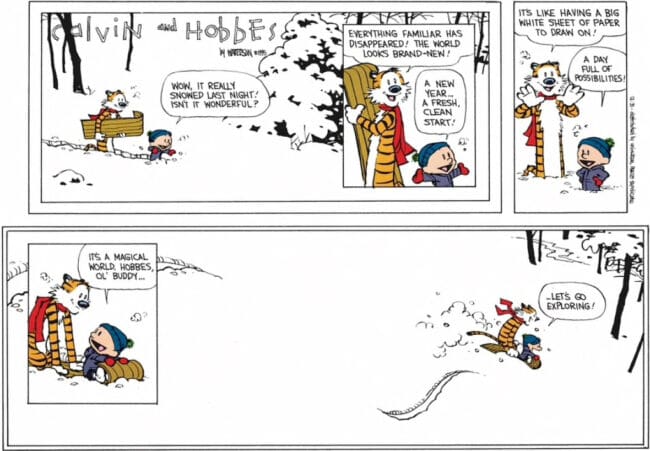I was mortified.
I had been invited to conduct my Calvin and Hobbes–inspired piece, “Go Exploring,” during a reading session of a visiting ensemble.
The musicians were struggling with the music I had written in general and with a certain 7/8 bar in particular. They had been rehearsing the piece without a conductor, and then called me in when the going got tough.
And boy did it ever get tough—on me!
I couldn’t conduct the passage in a way that helped them grasp what I was doing musically.
They eventually muddled through a credible rendition of it.
But I felt terrible about the piece I had written, even though the recording turned out okay. (My sweet composition teacher, David Sargent, even said, too: “The only thing I wish I could change about that piece was that I wrote it myself.”)
Too often when I was learning to compose, I found myself in situations like this: writing music that was needlessly difficult.
I wrote complicated music, because I didn’t know how elegantly to capture the magic of what I heard in my head.
That embarrassing reading session, more than any other event in my musical education, lit a fire in me to figure out how to express complex musical ideas simply.
There’s a good chance that you, too, are held back in your composing because of how complicated you perceive music to be.
- You avoid composing because you don’t know how to create the complex sounds you hear.
- You don’t believe your music is good enough because it doesn’t sound complex in your ears.
- You think that vivid, sophisticated musical ideas aren’t for you because you’re “just a performer.”
Just know this:
The simplicity of your musical ideas isn’t a bug. It’s a feature.
You don’t need a massive vocabulary to create great music.
Although you may not know it yet, your original music is a gift that others will treasure.
Everyone is capable of making music that matters.
That includes you.


